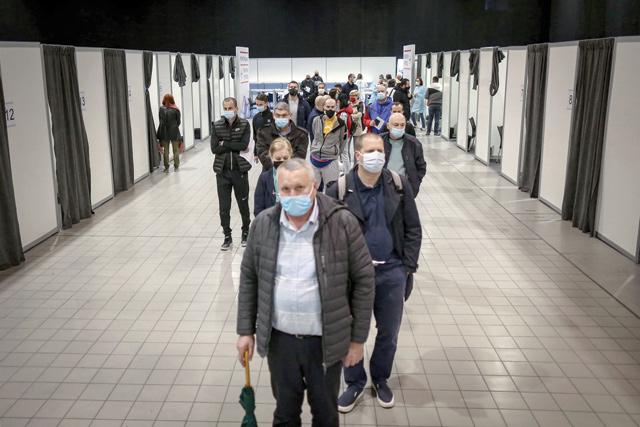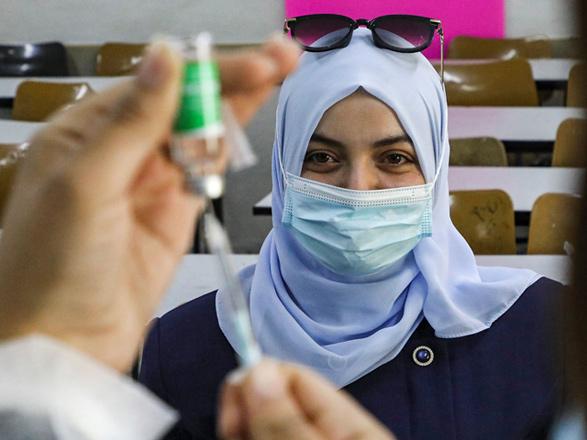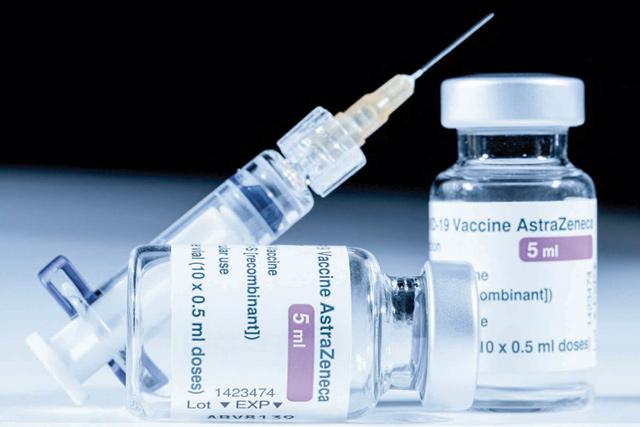You are here
AstraZeneca jab risk-benefit 'still largely positive' — WHO
By AFP - Apr 07,2021 - Last updated at Apr 07,2021

Bosnian citizens queue to receive a dose of the AstraZeneca Covid-19 vaccine at one of Belgrade's vaccination centre on March 28 (AFP photo)
GENEVA — The risk-benefit balance for the AstraZeneca COVID-19 vaccine is "still largely positive", the World Health Organisation said Tuesday after fresh claims about links to blood clots.
A top official from the European Medicines Agency — the EU's drug regulator — claimed there was a clear connection between the jab and clots, though the EMA itself said it was still reviewing data and no conclusions had yet been reached.
The WHO said there was no evidence that the risk-benefit analysis had shifted on the jab, which is one of only three different COVID-19 vaccines so far to have received the green light from the UN health agency.
"There is no link for the moment between the vaccine and thrombotic events with thrombocytopenia," Rogerio Pinto de Sa Gaspar, the WHO's director for regulation and pre-qualification, told a press conference.
"The appraisal we have for the moment — and this is under consideration by the experts — is that the benefit-risk assessment for the vaccine is still largely positive.
"For the time being, there is no evidence that the benefit-risk assessment for the vaccine needs to be changed."
The AstraZeneca jabs produced in South Korea and India, plus the Pfizer-BioNTech vaccine and that of Johnson and Johnson, are the only ones to have received WHO authorisation so far in the COVID-19 pandemic.
On March 18, after several countries suspended the use of the AstraZeneca jab, the EMA stressed that the benefits of using it outweighed the risks and it should remain in use.
The WHO gave strong backing to the jab the following day, urging countries to maintain the roll-out after reviewing reports of blood clots.
WHO Director General Tedros Adhanom Ghebreyesus said there was “no question” over the benefits after the organisation’s vaccine safety experts found no increase in clotting conditions linked to an AstraZeneca shot.
“The question with any pharmaceutical or vaccine is whether the risk of taking it is greater or less than the risk of the disease it is meant to prevent or treat,” he said at the time.
“There is no question: COVID-19 is a deadly disease and the Oxford-AstraZeneca vaccine can prevent it.”
The AstraZeneca vaccine accounts for almost all of the doses being distributed around the world in the first wave of the Covax global vaccine-sharing facility.
Covax has now delivered 36 million doses of coronavirus vaccine to 86 countries and economies, Tedros said Tuesday.
The scheme aims to ensure poorer nations get enough doses to vaccinate at least 20 per cent of their population by the end of the year.
Related Articles
THE HAGUE — The EU's medicines regulator said Wednesday that blood clots should be listed as a rare side effect of the AstraZeneca (AZ) jab
GENEVA — The World Health Organisation said there was no reason to stop using AstraZeneca's COVID-19 jab after several countries suspended r
LONDON — Queen Elizabeth II’s oldest son and heir on Wednesday criticised opposition to coronavirus vaccines, as British ministers sought to


















